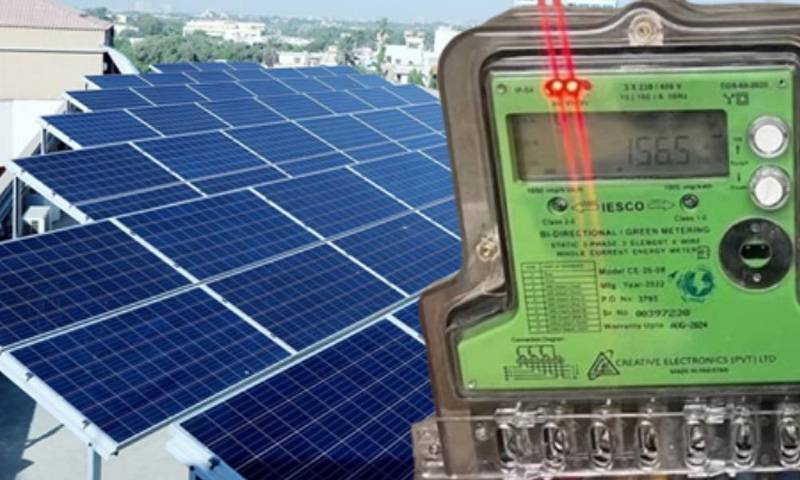ISLAMABAD – The federal government is mulling over revising the net-metering policy as existing one has put undue financial burden of billions of rupees on electricity consumers.
The government has reportedly planned to introduce gross metering system in order to protect the consumers from the burden.
In 2024, net metering has shifted a financial burden of Rs102 billion onto electricity consumers. According to official documents, this amount is projected to rise to Rs 503 billion in the next ten years.
Net metering users constitute only 0.6% of total electricity consumers, while the remaining 99.4% are bearing this burden. Approximately 80% of net metering users belong to affluent areas of major cities. Despite this, the government has refrained from amending the net metering policy due to political reasons.
A government report highlights that, in 2024, the wealthiest electricity consumers transferred Rs103 billion onto the bills of less affluent consumers due to the lack of timely policy intervention. These wealthy consumers, primarily from elite neighborhoods in eight major cities, have utilized the declining costs of solar technology to their advantage. They not only significantly reduced their monthly bills but also shifted their costs onto other consumers. Meanwhile, the government continues to strive for reductions in electricity bills.
The documents warn that if international practices are not adopted and the policy remains unchanged, this burden will escalate to Rs. 503 billion over the next decade. Repeated calls for reforms have been made, but political considerations continue to stall necessary changes.
In 2021, there were 321 MW of solar net metering connections in the country. By 2024, this capacity surged to 3,277 MW and is projected to reach 12,377 MW by 2034. According to the documents, cities such as Islamabad, Lahore, Gujranwala, Faisalabad, Karachi, Multan, Rawalpindi, Peshawar, and Sialkot host 80% of net metering users. Currently, there are 226,440 net metering users, accounting for only 0.6% of the total 37 million electricity consumers.
Experts emphasize the government’s responsibility to protect consumers from additional financial burdens while continuing to support net metering as a viable option. However, it must not be allowed to become an exploitative and imbalanced business. Globally, new technologies are initially supported with incentive pricing, but as they mature, governments revise policies to align profits with market dynamics. In the case of solar net metering, international standards have significantly reduced electricity purchase rates to ensure green energy benefits homes without creating an imbalanced business model.
Unfortunately, due to delayed decisions, solar net metering in Pakistan has become a source of unfair profit and an increased burden on other consumers. NEPRA (National Electric Power Regulatory Authority) has also come under scrutiny for its failure to review and adjust policies in a timely manner, thus prioritizing the interests of the wealthy over those of the general public.










